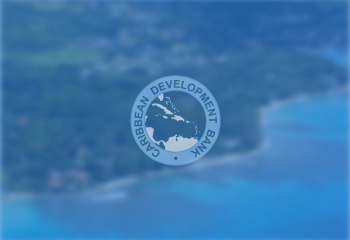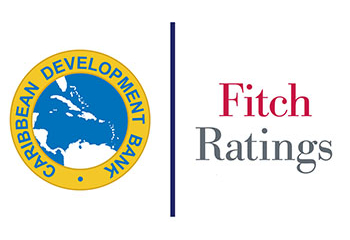CDB President Calls for End to "Fragmented Responses" as Caribbean Faces Unprecedented "Web of Risks"
President of the Caribbean Development Bank (CDB, the Bank), Mr. Daniel M. Best, today issued a rallying call for the Caribbean to abandon piecemeal responses and adopt integrated, cross-sectoral strategies to confront the “web of risks” threatening sustainable development across the region.
“Fragmented responses are no longer viable. We cannot afford to respond to interconnected crises with disconnected strategies,” he declared at the 2nd Wider Caribbean Regional Risk Conference which is being hosted by CDB, CCRIF SPC – the Caribbean and Central America parametric insurance facility and development insurer, and CAF – Development Bank of Latin America and the Caribbean.
Mr. Best warned that the convergence of the climate crisis, economic instability, and social inequality is pushing the Caribbean into deeper vulnerability. He outlined a prescription for resilience anchored in six pillars: policy coherence, cross-sectoral collaboration, data-driven risk mapping, community engagement, innovative financing, and regional cooperation.
He urged governments to align climate, economic, and social policies so that they reinforce rather than undermine one another, ensuring that national budgets embed disaster risk, climate resilience, and social protection that can scale in times of crisis. Breaking down institutional silos, he stressed, is critical: “Ministries of finance, education, health, and environment must come together proactively before a crisis, in everyday planning and policy design.”
The CDB President also emphasised the power of data and technology in mapping overlapping vulnerabilities, noting that “what we cannot see, we cannot measure, and we therefore cannot solve.” He pressed for greater investment in geospatial data systems that can transform how governments allocate resources and target social protection.
Mr. Best underscored the importance of local participation, calling communities “our greatest source of wisdom, resilience, and innovation,” and urged that indigenous knowledge and grassroots expertise be integrated into decision-making. Financing, he added, must also evolve, tapping blended models, green bonds, and resilience-linked instruments to crowd in private investment while ensuring equity and justice; because crises do not respect borders, he pressed for deeper regional cooperation to pool resources and harmonise policies.
Turning to the role of the Caribbean Development Bank, Mr. Best pledged that the Bank is "standing shoulder to shoulder" with its Borrowing Member Countries. He outlined concrete measures already underway, including accelerated Climate Action initiatives with 35% of all approvals targeted to climate finance over the next five years. Within the Bank’s USD 460 million Special Development Fund programme, the goal is even higher, with 40% targeted to climate resilience projects. The Bank will also leverage its expanded Green Climate Fund accreditation, now enabling it to finance projects up to USD 250 million, to scale up climate intervention and accelerate the region's energy transition.
On economic resilience, the Bank's new Private Sector Development Strategy is unlocking access to finance for Micro Small and Medium-Sized Enterprises (MSMEs), women-led businesses, and export industries, while digital trade solutions like the electronic Port Community System in Barbados are reducing red tape and boosting competitiveness.
To advance social inclusion, the Bank is promoting gender equality and inclusive growth through the Caribbean Gender Equality Market Sustainability Technical Assistance Project (Caribbean GEMS), its flagship Basic Needs Trust Fund, and next-generation poverty assessments that combine data mapping with participatory approaches to better target social protection.
Mr. Best also highlighted the Bank’s own reforms to strengthen its risk capacity, including the Exposure Exchange Agreement to expand lending space and a new Enterprise Risk Management Framework embedding risk governance across operations. With these measures, he affirmed, the CDB is committed to action that matches the scale of the challenges: “This is the role of your development bank, as a partner in transformation driving a pathway for a future-proofed Caribbean.”
The 2nd Wider Caribbean Regional Risk Conference will run from September 3-4 in St. Philip, Barbados. The event has brought together governments, development partners, private sector leaders, and civil society to confront the region’s growing exposure to interconnected risks by devising integrated strategies to strengthen resilience and safeguard sustainable development.

